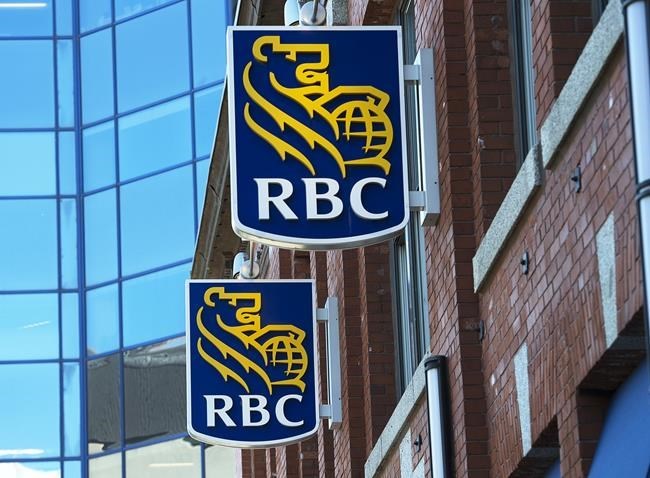TORONTO — After a year of building up reserves to protect themselves from customers who may default on loans, banks are starting to consider how they might deploy their cash when the COVID-19 pandemic subsides.
Many spent the bulk of last year stowing away billions of dollars in the event their customers fell on hard times, but fortunately government relief programs and fewer spending opportunities kept consumers overwhelming afloat.
As vaccination efforts expand in Canada and talk of reopening is swirling in many provinces hit hardest by the virus, executives from the country's most prominent banks faced questions from analysts Thursday about what they'd do with all the cash they are sitting on.
TD Bank Group chief executive Bharat Masrani indicated that acquisitions might be a possibility for his bank.
"We will not be shy to do a bank deal. It could be in the southeast of the U.S. or any part of our footprint," he told analysts during a Thursday afternoon call.
"We have said that we would look for asset-generating types of businesses as well...and so we continue to monitor the situation."
But Masrani indicated there are a wealth of options at his and other banks' disposal.
"We always want to make sure that we have flexibility around capability builds, either organically or inorganically... (but) if we still have excess capital, we will not be shy to return that to our shareholders," he said.
Over at the Canadian Imperial Bank of Commerce, which held a call just before markets opened, analysts asked whether the bank would increase its lending programs, perhaps to include more consumer-based or auto products.
While she didn't commit to expansions in any area, Laura Dottori-Attanasio, who leads CIBC's personal and business banking division, said, "if there are different offerings that we think makes sense for our clients, we'll certainly be there to offer them, absolutely."
Meanwhile, Royal Bank of Canada faced questions about dividends.
Last year, the Office of the Superintendent of Financial Institutions banned executive compensation hikes, dividend increases and common share buybacks in an effort to keep banks and insurers stable even as other companies declared bankruptcy, resorted to mass layoffs and contended with lockdowns that left their businesses closed for long periods of time.
"Our current philosophy, and that won't change in the long-term, is to link our dividend payout to core earnings growth...and we've let that trail to the lower end, given the inability to raise dividends," said Dave McKay, the bank's chief executive on a morning call.
Returning earnings to shareholders, he indicated, was on his mind because RBC's credit card business has been strong and its customer base increasing.
The bank, McKay said, expects to use accelerated buybacks to return capital to shareholders, but would explore other options too.
"We're running a number of scenarios trying to optimize the return to our shareholders, taking all factors into consideration," he said.
McKay, Dottori-Attanasio and Masrani's remarks came as all three banks beat analyst exceptions in their second quarters.
RBC reported earnings of $4.02 billion or $2.76 per diluted share during the quarter, up from a profit of $1.48 billion or $1.00 per diluted share a year earlier.
The result came as RBC reversed $96 million of its provisions for credit losses compared with the $2.83 billion it set aside in the same quarter last year at the start of the pandemic.
CIBC earned $1.65 billion or $3.55 per diluted share in the quarter, a jump from a profit of $392 million or 83 cents per share a year ago.
Its provisions for credit losses slipped to $32 million compared with $1.41 billion in the same quarter last year.
TD earned $3.7 billion or $1.99 per diluted share for the quarter, an increase from a profit of $1.5 billion or 80 cents per share a year ago.
The bank posted a $377-million recovery of credit losses for its latest quarter compared with a provision for credit losses of $3.2 billion a year ago at the start of the pandemic.
On Wednesday, BMO Financial Group also reported that it beat analyst expectations and that its provisions for credit losses fell too.
National Bank of Canada is expected to release its second-quarter results on Friday and the Bank of Nova Scotia will cap off major bank earnings next week.
This report by The Canadian Press was first published May 27, 2021.
Companies in this story: (TSX:TD, TSX:CM, TSX:RY, TSX:NA, TSX:BMO, TSX:BNS)
Tara Deschamps, The Canadian Press



